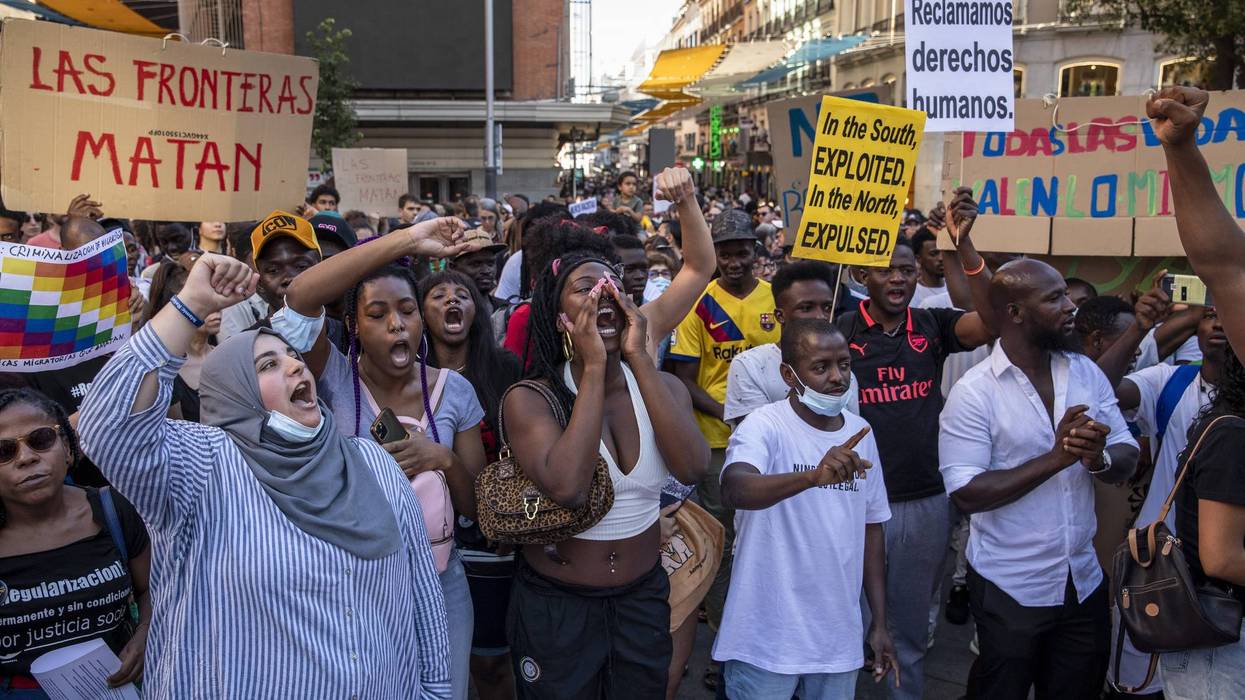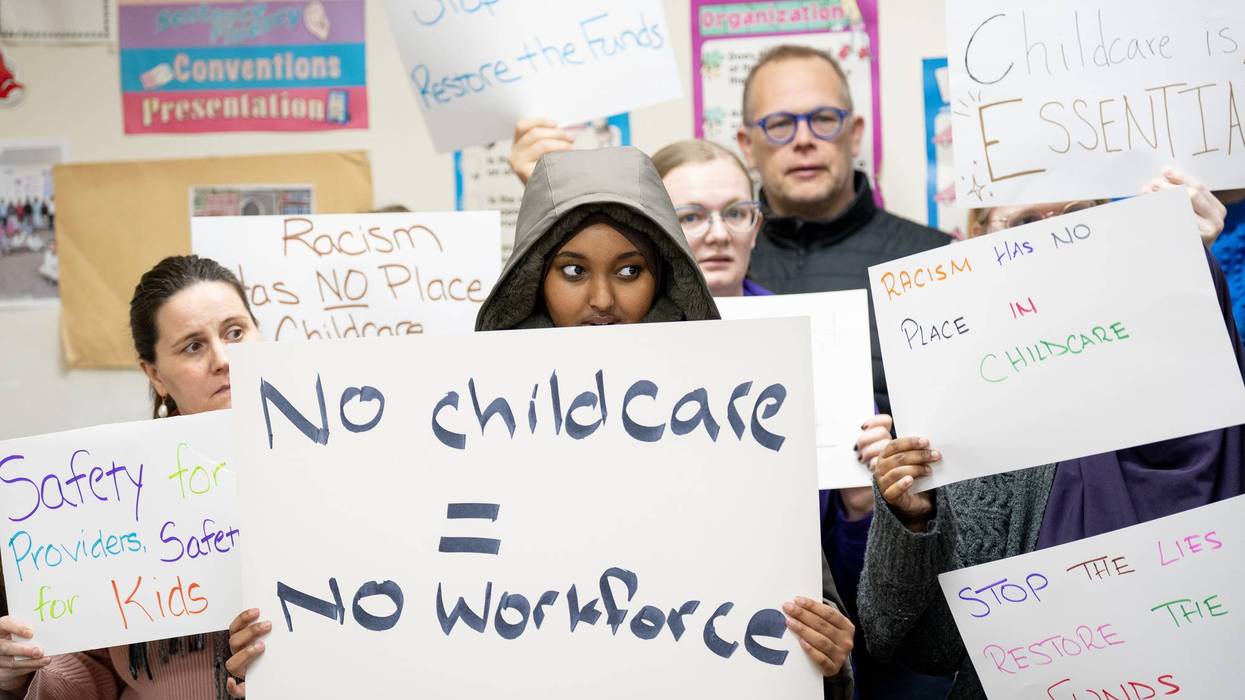As Trump Terrorizes Immigrants, Spain Offers Permanent Residency for 500,000 People
Responding to the deadly US crackdown, one Spanish leftist leader said, "If they kidnap children and murder, we give papers."
As President Donald Trump terrorizes immigrants and Americans alike with his deadly mass deportation blitz while warning European leaders to tighten their borders by raising the racist specter of "civilizational erasure," Spain's government is moving against the xenophobic tide by offering hundreds of thousands of migrants a chance at permanent legal residency.
The Spanish Socialist Workers' Party (PSOE) government of Prime Minister Pedro Sánchez and the leftist Podemos party reached an agreement Monday following the collection of more than 700,000 petition signatures in favor of a legislative initiative to legalize up to 500,000 undocumented migrants.
Those who can prove that they were in Spain for at least five months before December 31, 2025 and have no criminal record will be eligible for permanent legal residency with permission to work.
Spanish Migration Minister Elma Saiz (PSOE) said during a press conference that "today is a historic day" for starting the process of legalizing hundreds of thousands of immigrants in a country that has made great strides in overcoming its legacy of racism and xenophobia.
The far-right Vox party called the legalization plan "madness" that promotes "barbarity."
However, Saiz said that legalization will help Spain “recognize, dignify, and give guarantees” to people who already live and work in the country.
“We’re reinforcing a migratory model based on human rights, on integration, and on coexistence that’s compatible with both economic growth and social cohesion,” she added.
Responding to arguments that legalizing so many migrants would severely strain Spain's social safety net, Podemos Secretary General Ione Belarra said on social media, "What overwhelms public services are your cuts and privatizations."
Belarra also said that some opponents of legalization are angry that they will no longer be able to exploit migrants by paying them less than legal workers.
Podemos Political Secretary Irene Montero said Tuesday that "we have a legal obligation to guarantee [migrant] rights and that is what this regularization is, which we hope will reach all the people without papers in Spain who were here before December 31, 2025."
Spain's population is approximately 49.4 million. Legalizing half a million immigrants would be the equivalent of granting permanent residency to about 3.6 million migrants in the United States. There were believed to be about 7.1 million foreign nationals living in Spain at the beginning of last year, of whom an estimated 840,000 were in the country without authorization.
Sánchez's PSOE-led government has been supportive of immigrants since coming to power in 2018, offering safe harbor for migrants arriving in Europe by sea when other European Union nations have moved to restrict their entry. More than 10,000 migrants died trying to reach Spain in 2024, according to the Spanish advocacy group Caminando Fronteras (Walking Borders).
Meanwhile, Trump's latest National Security Strategy, released last month, urges the US to "cultivate resistance" to immigration in Europe, espousing racist "great replacement" ideology while warning of “the real and stark prospect of civilizational erasure."
“Should present trends continue, the continent will be unrecognizable in 20 years or less," the document states.
European nations including Denmark, Germany, Greece, Poland, Sweden, and the United Kingdom have recently tightened their migration and asylum policies, in some cases partially due to pressure from Washington.
Responding to Trump's deadly anti-immigrant crackdown—which has killed both immigrants and US citizens—Montero said Tuesday that “in the United States at the moment there are millions of people who are afraid in their own homes because Trump’s migration policy enters people’s homes and takes them away."
“We cannot accept that there are people who live in fear and without rights," she added. "We cannot accept racist violence. Racism is answered with rights. If they kidnap children and murder, we give papers."




